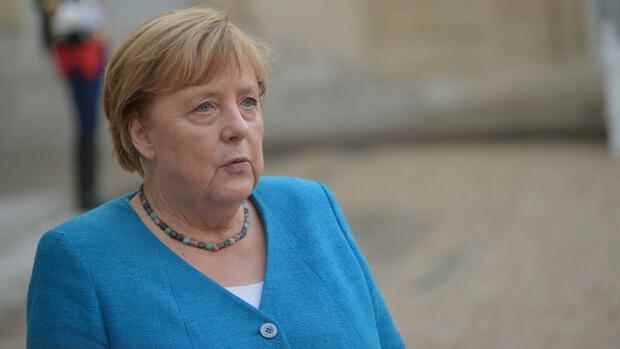The leader of the free West should be Angela Merkel, or even the last advocate of freedom. That was not the case in the times when Donald Trump plunged into a veritable identity crisis among supporters of the open society. That was already an exaggeration at the time. To what extent was shown recently by the Afghanistan cause.
But even this flaw does not change the fact that the Chancellor enjoys an excellent international reputation. Why it is like that? This can perhaps be explained by the sheer length of her chancellorship. 16 years – whether the financial crisis, the euro crisis, the refugee crisis and now the pandemic – crises have come and gone, Merkel has always been there.
But constancy means predictability, and ultimately security. On the other hand, Merkel has definitely set standards with her unpretentious way of doing politics. Objective, science-based, rational and above all: no experiments – that was their foreign policy style, and this has certainly contributed to overcoming many crises.
Top jobs of the day
Find the best jobs now and
be notified by email.
So there are enough reasons for Merkel’s good reputation. But they do exist, the problem areas of their foreign policy, especially in Europe and China. Merkel’s chancellorship fell at a time of great upheaval: there is the unstoppable rise of China, which is not only a system alternative to the West, but is also consistently and efficiently expanding its spheres of influence around the world.
There is America, the contested leading power in the West, which is preoccupied with itself and also pursues an America-First policy under President Joe Biden. And there is above all the economically powerful but geopolitically tiny Europe, which seems hopelessly overwhelmed in these times of upheaval and cannot even get its institutional problems under control.
Merkel was never a representative of the intergovernmental approach
The geo-economic pillars of German foreign policy – here the reference to its big brother on the other side of the Atlantic, there the economic orientation towards Asia, especially China – are crumbling. The Merkel method, a policy of small steps, of breaking down big problems into many sub-problems that need to be solved, seems to have fallen out of time against the background of the challenging geopolitical panorama. The force of the changes is too great, the European capacities to deal with these changes too small.
Merkel is partly to blame. As great as Merkel’s contribution to the acute management of the many crises in Europe may have been, the Chancellor exercised abstinence while working on a draft for a new Europe.
Even more: All those like Emmanuel Macron who at least tried to formulate something like a new idea or even a vision for the continent put the sober representative of the continent’s economic powerhouse on an intellectual diet.
Even if she never said it openly, Merkel was never a representative of the intergovernmental approach. Although the Chancellor has championed Ursula von der Leyen as head of the Commission, the European Council remained the institution of her choice.
The commission owed the increase in power through the reconstruction fund and the limited joint borrowing solely to the fact that the economic crisis caused by the pandemic threatened once again to endanger the existence of the monetary union.
Despite her often successful crisis management – the Chancellor leaves the next federal government with many unsolved problems. Jens Münchrath
As is so often the case, it was not the result of a strategic debate about what the future of Europe could or should look like. Because you don’t have to be a supporter of a centralized approach, you don’t have to be an advocate of debt pooling to come to the conclusion that the Union, that fragile construct somewhere between the federal state and the confederation, is not fit for the future.
The example of China shows how difficult it is for Europe to even formulate a common foreign policy. It is easy for the almighty Xi Jinping to take advantage of the European fragmentation. This is also due to the fact that the federal government has always insisted not to jeopardize its economic interests in the Middle Kingdom.
An honest China policy certainly includes naming the economic price that a confrontational attitude costs. However, this view is too short-sighted. Even the German economy will not deny that a self-confident European attitude towards Beijing, which does not have to be loving towards Washington, is in their long-term interest.
Only pan-European pressure with the help of the USA can, for example, set limits to the Chinese arbitrariness vis-à-vis foreign investors. An “Alliance of Democrats” that Biden propagated and that Merkel always viewed with skepticism makes perfect sense here – without, of course, having to follow the American policy of decoupling. Merkel’s rash EU investment pact with Beijing is not what one could call a long-term strategy.
The times when Germany could stay out of global political conflicts are over. Germany is anything but a leading global power, but it will no longer be enough for the coming federal government to manage the economic success story. Germany needs Europe, which is in bad shape after Brexit and the rise of the illiberal democrats, worse than when Merkel took office 16 years ago. Europe is the most important challenge facing the next federal government.
More: The end of the Merkel era is slowing down the expansion of the EU to include the Western Balkans.
